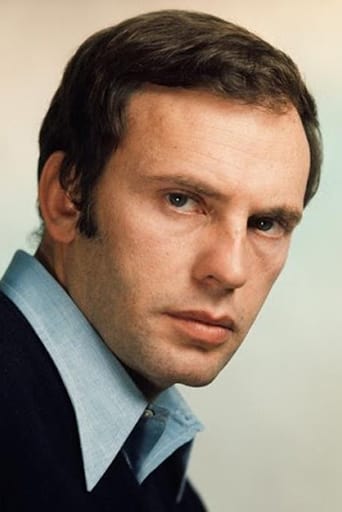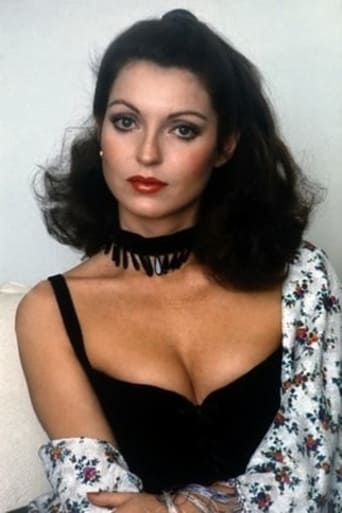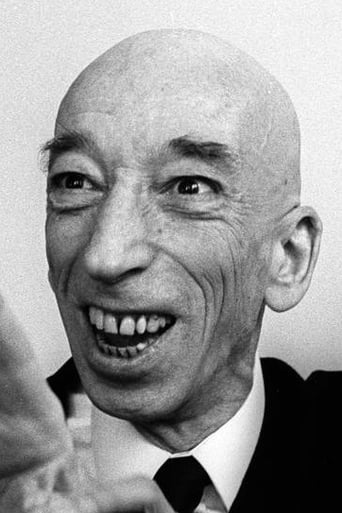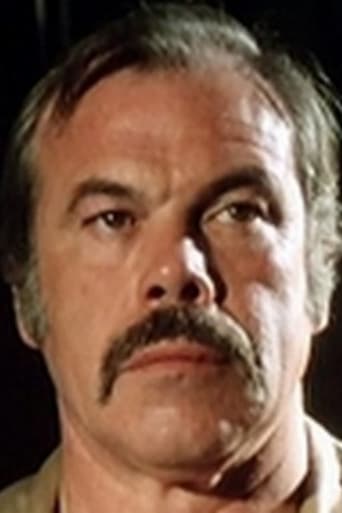Mjeteconer
Just perfect...
Doomtomylo
a film so unique, intoxicating and bizarre that it not only demands another viewing, but is also forgivable as a satirical comedy where the jokes eventually take the back seat.
Neive Bellamy
Excellent and certainly provocative... If nothing else, the film is a real conversation starter.
Hattie
I didn’t really have many expectations going into the movie (good or bad), but I actually really enjoyed it. I really liked the characters and the banter between them.
Bribaba
On board the TEE is 'Elias' (Jean-Louis Trintignant), a paranoid drug dealer on his way from Paris to Antwerp. And in another compartment are his creators; film-makers having a script meeting from which Elias emerges. It's a typical Robbe-Grillet construct, honed from nouveau roman experiments. The purpose of which, as he puts it, is to "assist change by throwing out any techniques which try to impose order or a particular interpretation on events". The result in this case is a parallel universe, on one hand Elias trying to act like a drug dealer and on the other, proceeding according to the whims of his creators. In effect, it becomes a real-time replay of the writing and editing process,There are those who might regard this as typical French pretension, full of intellectual conceit (it was banned in England for many years), but it's playful, witty and very accessible thanks to a droll script and the great Jean-Louis. And then there's the beautiful Marie-France Pisier with her large inquisitive eyes. She makes an unlikely hooker, but is she? The scriptwriter on the train is played by Robbe-Grillet himself and so establishing that he really is making it up as he goes along. It's beautifully shot in crisp b&w, perfectly capturing the zeitgeist. It would be another twelve years before Kraftwerk created their musical homage to the great train, but it says something about both forms that it would have made the perfect soundtrack.
Polaris_DiB
This may just be a film about roleplaying, but it's some serious work.Three people sit on a train and narrate a movie they want to make, inspired by events around them and another passenger, as well as collaborating and figuring out the details of the narrative as it occurs. Obviously, as the narrative unfolds, things go uber-meta as scenes are acted out later to be thrown away, plot holes are directly pointed out within the narration, and of course as meta always goes within the story within the story are other stories told.However, Robbe-Grillet is not just being silly. The main character's paranoia and distrust runs towards the brink as the movie goes along and every action turns out to be a test, or misdirection, or false plot device. He cannot keep his own role straight, meaning he falls into every trap the mysterious coke dealers set for him as well as gives away everything to a police officer, he cannot remove himself enough emotionally from the mindgames that his roleplaying with the femme fatale comes to a fatal end, and the running train and close-ups on faces punctuating the story show his anxiety and mental breakdown as it seems his fate is, truly, in the hands of flippant writers and outside forces that don't let a man go about minding his own business.Similarly, the focus on bondage is juxtaposed by Robbe-Grillet's almost abject inversion of The Gaze. The Gaze is the term for undercurrent of male-dominated perspective in cinema, as women are treated by the camera as objects to "gaze" at whereas men are typically the ones "gazing". This would seem to be the case here what with the main character's pornography magazine, his roleplaying of rape, and the finale in which that obscure object of desire literally ends up in chains. However, this same protagonist finds himself uneasily the subject of the gaze itself as women, passersby, and the writers continually stare at him with mocking and seductive expressions. The woman he sleeps with herself is in more control of everything going on than he is, and unable to handle that control, he eventually kills her. By the end, he cannot look at a woman without feeling implicated into something, and paranoia sets in.This theme finds its final punctuation in the final scene when the writers brush off their own storytelling as a decent enough yarn, only really interesting simply because it's not real life. Real life then finds the protagonist and the femme fatale as everyday lovers--but their grinning embrace directly into the eye of the camera implicates the audience, because we were not there to see them have a nice day and go about their lives happily ever after, we were there to see them in bondage and self-destruction, and were entertained by those notions.--PolarisDiB
pstumpf
Robbe-Grillet's most overtly playful movie, with a narrative that doubly doubles back on itself. A writer (played by Robbe-Grillet himself), his assistant (Catherine, his wife), and a producer board the Trans-Europ Express for Antwerp. The producer asks the writer to formulate a screenplay based on their present situation. Jean-Louis Trintignant, seen in a prologue buying L'Express, then stealing another magazine with pictures of women in bondage poses, enters their compartment, looks furtively at the trio, and leaves. They "recognize" him as the actor Trintignant, and the writer begins to compose his story, with Trintignant as the protagonist, of a smuggler running drugs into Belgium. The film we see is that story, with occasional interruptions by the assistant or the producer commenting on the story ("But that's absurd!" "Well, we'll cut that scene then"). The smuggler follows clues for a complicated drop-off, and dallies with a prostitute (the lovely Marie-France Pisier), in a typical Robbe-Grillet scene of consensual rape and bondage. Then the whole drug delivery set-up is revealed as a dry run for the novice smuggler, who must then re-embark on the same journey, with different results.Robbe-Grillet's fantasies of erotic violence and bondage culminate in this film with a night-club act, in which a young woman, kneeling with one leg extended behind her, on a revolving table, is stripped and chained, in slow close-ups, making voyeurs of the movie audience as well as the night-club patrons.The story ends as our trio arrives in Antwerp, with a surprise final freeze frame of "Trintignant" being greeted by "Pisier". An entertaining diversion on storytelling. Robbe-Grillet may just be the "anti-Godard"; his films (of which I've now seen four) are demonstrations of cinema as "un-truth" at 24 frames per second.
cbreyno
This film is a beautifully done story within a story --- film within a film. The author and friends take a train ride and begin to work out a film; its plot, its characters and their actions. As the story evolves the characters take on their own existence, reality becomes inverted; they weave their own story as author becomes audience.It is a taste of the 1960's thinking of the Michael Caine foreign intrigue films, The Orient Express not to mention the Manchurian Candidate. In a way it thumbs its nose at the genre.I saw it when it ran almost forty years ago and enjoyed it immensely. If you can find it --- check it out.




